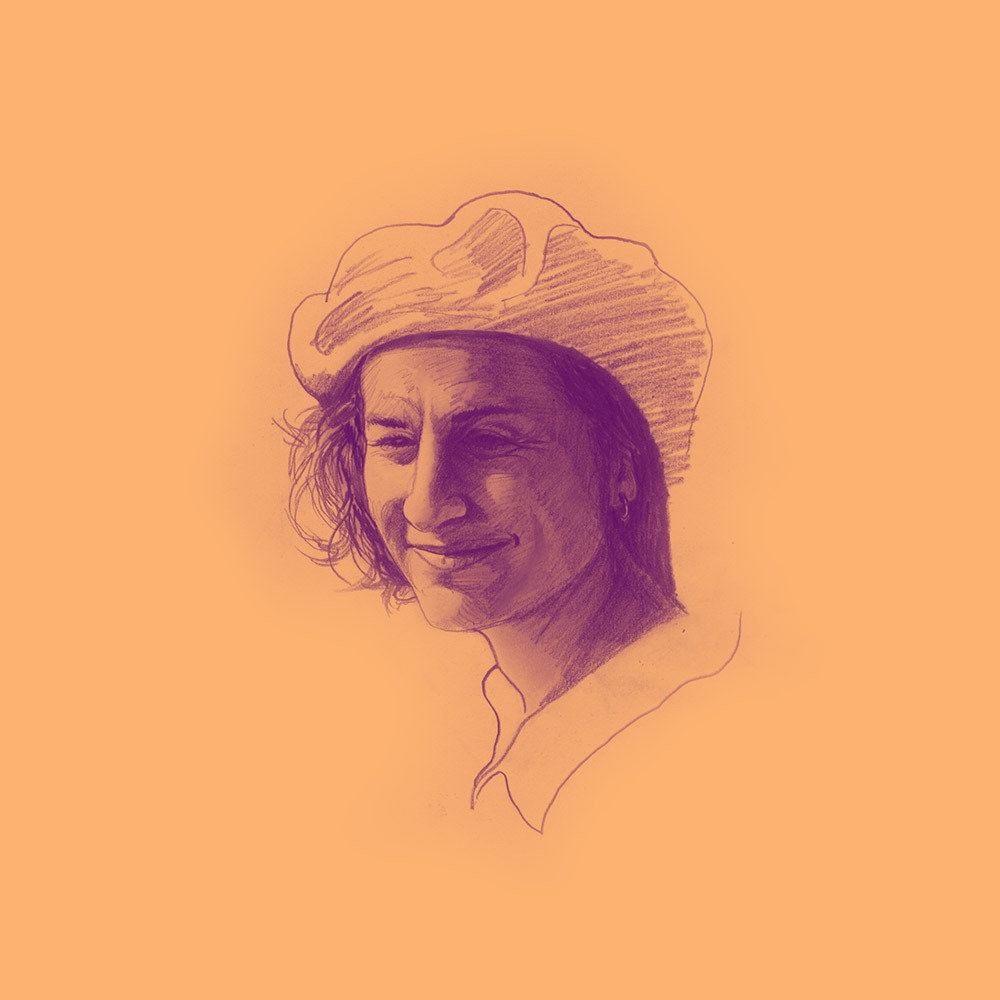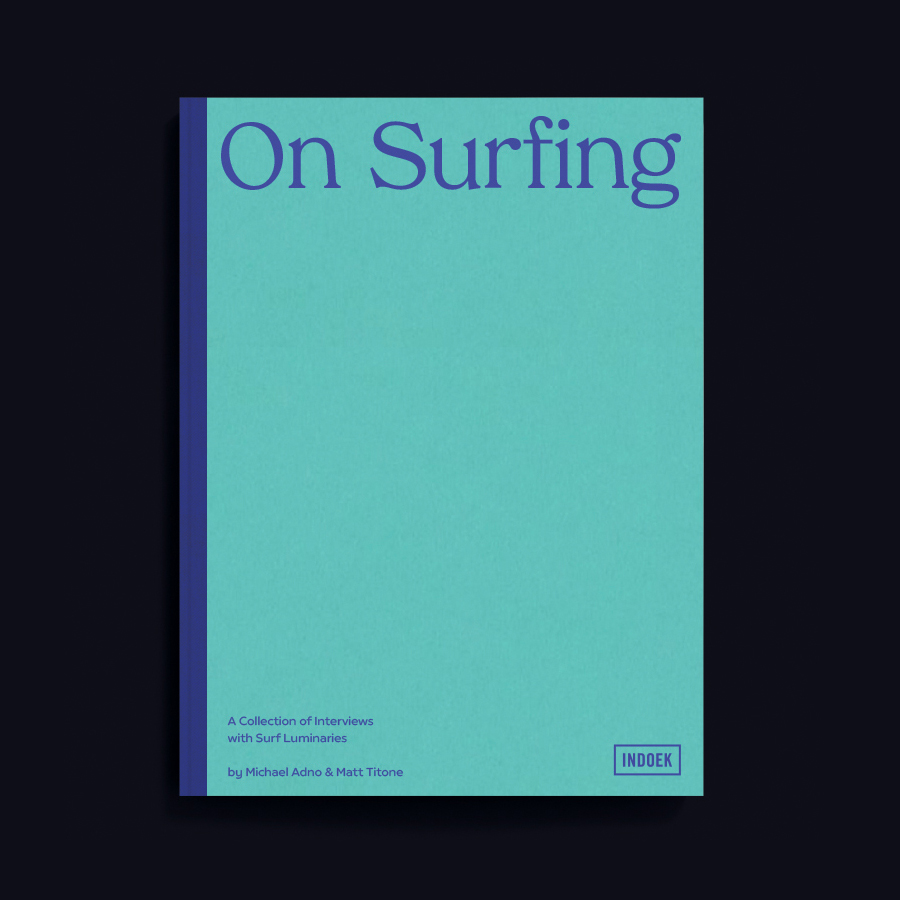Can you describe one of the most challenging aspects of surfing to you?
I live in Biarritz, France, and we’re coming out of two months of lockdown. So, lately, the most challenging part has been not being able to surf at all. On May 16, despite the shitty conditions in the Basque Country that day, there were hundreds of surfers that jumped into the water. More than anything, and if we still had some doubts, this pandemic has finally pulled back the curtain on the idea that surfing is about performance. When you looked at the childish smiles on our faces that morning, it was obvious: performance doesn’t have anything to do with the simple pleasure of surfing.
Otherwise, and more generally, the most challenging aspect to me is surfing big waves. I had a scary experience years ago, and since that day, I don’t feel comfortable when the conditions look massive. Gaining confidence requires practice and commitment, but above all, failure. So, even if it sounds like a Pinterest quote, pushing myself and going out of my comfort zone have been to me the highest psychological mountains to climb so far.
Regarding another challenge in surfing, I’ve always found that surfing maintains a very ambiguous relationship with the “Conquest of Cool,” and it’s something I’ve never been comfortable with. Since its origins, thanks to surf photography as well as surf films, surfing developed a very strong aesthetic and visual culture. The whole lifestyle is and has always been very photogenic. So surfing always comes with an attitude and, some- how, an implied injunction: you have to be cool. I’m not at ease with these ridiculous, offensive, and non-inclusive standards imposed by the industry. The community of surfers around the world is rich and diverse. No need to be cool.
What’s one of the most redemptive or rewarding parts of surfing?
When you surf, there’s a bridge that’s being built between you and the natural element, just like gardening. You come to the universal conclusion that nature doesn’t need you to live, at all. The land existed well before us and will survive us. And once you learn this, you become more humble.
Has surfing afforded you anything in life? If so, what?
This is the first time I’ve asked myself this question, and I realize surfing gave me a passion that I turned into a job. I became a surf journalist 12 years ago, after a short career in radio broadcasting. I used to work for Surfrider Foundation Europe as a journalist before surfing publications. It’s been more than a decade now. Today, some of these print magazines don’t even exist anymore. It sounds like a forgotten universe where the press world used to meet all around Europe in order to cover surfing competitions. It was a fun time, and I feel like a lucky dinosaur today to have experienced that.
After that deep immersion into the world of surfing, I felt like I came full circle and needed some space for other important elements in my life. So, I organically became editor-in-chief of magazines dedicated to the ocean. However, surfing has never been far.
How long can you go without surfing?
I can’t go without surfing for weeks. I’m lucky to live near the Basque country, where I can easily go hiking, for example. Within 30 minutes, I can find myself in the mountains. I can swim in the ocean less than two miles away from my place. I can take care of my garden. I also write a lot and it takes me so much time. I ride my bike, and I also work out a lot, so surfing is not what it used to represent when I was younger, but these things aren’t comparable to what I feel when I surf.
How and when did you fall in love with surfing?
I first fell in love with the ocean before even trying standing up on a surf- board. We used to spend our summers with my brother Simon in Hendaye, a small coastal town along Spain’s border. My grandfather lived on a sailboat, and we would stay there with him. Later, my mother bought a sailboat on the same dock. So, basically, what I remember is spending hours in the waves, diving in secret bays, looking underwater through our masks at colorful fish, jumping from rocks, and falling asleep on the bridge of the boat. For me, it was the life I wanted to live — barefoot, under the sun, and near the ocean. I remember we took surfing lessons at a young age with my brother, but only when I lived alone on my mom’s sail- boat for a year did surfing became a thing. Around 20, I was working for a shop dedicated to water sports, and at that time, my days would consist of surfing before work, surfing on my lunch break, and surfing after work. That’s when surfing became an essential thing in my life. I was totally immersed in the lifestyle. Then, I moved to London for three years to study journalism and could only surf during holidays. That was a hard time, but when I came back to France 12 years ago, I was more determined than ever to include surfing and the ocean in my everyday routine. And that is what I did.
What’s one of your pre/post-surf rituals you hold dear?
When I spend a few days surfing in Spain or anywhere in the Landes, I like to make coffee in my van. It’s a simple pleasure, but after a nice or even shitty session, the smell of the coffee burning, and the time it takes to make it — it’s something I like a lot.


